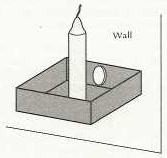
How to save above 2.000 Jewish children from the Nazis:
a jar and a lot of courage in the recipe of Irena Sendler. 🧵👇
#HolocaustMemorialDay2022
a jar and a lot of courage in the recipe of Irena Sendler. 🧵👇
#HolocaustMemorialDay2022

1.
First of all, who was Irena:
"Nom de guerre" Jolanta (15 February 1910 – 12 May 2008), was a Polish humanitarian, social worker, and nurse who served in the Polish Underground Resistance during World War II in German-occupied Warsaw.
[source: Wikipedia]
First of all, who was Irena:
"Nom de guerre" Jolanta (15 February 1910 – 12 May 2008), was a Polish humanitarian, social worker, and nurse who served in the Polish Underground Resistance during World War II in German-occupied Warsaw.
[source: Wikipedia]
2.
She was already furious as a young woman at the constant discrimination against her Jewish friends.
As a student in social welfare at the University of Warsaw, Sendler publicly denounced the segregation of classrooms, earning her a suspension and a bad reputation.
She was already furious as a young woman at the constant discrimination against her Jewish friends.
As a student in social welfare at the University of Warsaw, Sendler publicly denounced the segregation of classrooms, earning her a suspension and a bad reputation.
3.
And then the Nazis arrived...
Germany invaded Poland in September 1939, and 1 year later, Hitler announced that hundreds of thousands of Jews in Warsaw were to be forced into just over one square mile of land.
Families living in the Ghetto quickly became starving and sick.
And then the Nazis arrived...
Germany invaded Poland in September 1939, and 1 year later, Hitler announced that hundreds of thousands of Jews in Warsaw were to be forced into just over one square mile of land.
Families living in the Ghetto quickly became starving and sick.
4.
In this context, the Irena masterpiece begins:
.she secured passes to the ghetto on the pretense of checking for typhus outbreaks.
.she and her associates carried many children beneath the Gestapo’s noses in coffins, toolboxes, and briefcases.
In this context, the Irena masterpiece begins:
.she secured passes to the ghetto on the pretense of checking for typhus outbreaks.
.she and her associates carried many children beneath the Gestapo’s noses in coffins, toolboxes, and briefcases.
5.
The campaign of rescue missions continued outside the Ghetto:
.she founds new documents for these children
.safe houses as orphanages, convents, and foster families across Poland.
The campaign of rescue missions continued outside the Ghetto:
.she founds new documents for these children
.safe houses as orphanages, convents, and foster families across Poland.
6.
In 1942, a laundry owner betrayed Irena Sendler.
At 3am on Oct 20th, the Gestapo burst into Sendler’s apartment, arresting her for aiding Jews throughout the country.
The police had captured Sendler, but her records with every child's identity remained safe.
But how?!...
In 1942, a laundry owner betrayed Irena Sendler.
At 3am on Oct 20th, the Gestapo burst into Sendler’s apartment, arresting her for aiding Jews throughout the country.
The police had captured Sendler, but her records with every child's identity remained safe.
But how?!...
7.
Irena stored this information in glass jars, written on thin cigarette papers.
Was her friend Janina Grabowska who guarded the jars when Sendler was arrested.
Janina protected the children’s names with her life, all without knowing whether her friend would ever return.
Irena stored this information in glass jars, written on thin cigarette papers.
Was her friend Janina Grabowska who guarded the jars when Sendler was arrested.
Janina protected the children’s names with her life, all without knowing whether her friend would ever return.

8.
The Polish humanitarian endured months of physical and psychological torture, and was then sentenced to execution in 1944.
But before the execution, the Nazi resistance group called Zegota paid the Gestapo the modern equivalent of over $100,000 for Sendler’s release.
The Polish humanitarian endured months of physical and psychological torture, and was then sentenced to execution in 1944.
But before the execution, the Nazi resistance group called Zegota paid the Gestapo the modern equivalent of over $100,000 for Sendler’s release.
9.
After the war, Sendler reconnected with the children she’d helped escape, remaining in contact for so long.
Yet despite all the lives she saved, she remained hesitant to accept praise for her actions, remarking:
“I continue to have qualms of conscience that I did so little.”
After the war, Sendler reconnected with the children she’d helped escape, remaining in contact for so long.
Yet despite all the lives she saved, she remained hesitant to accept praise for her actions, remarking:
“I continue to have qualms of conscience that I did so little.”
Although I usually write about business, personal growth and behavioral economics, this 🧵 is a tribute to a great woman on #HolocaustMemorialDay2022 

If you like this content, please share and make sure to follow @davevsamuel for new daily 🧵 about "ideas worth spreading".
• • •
Missing some Tweet in this thread? You can try to
force a refresh










